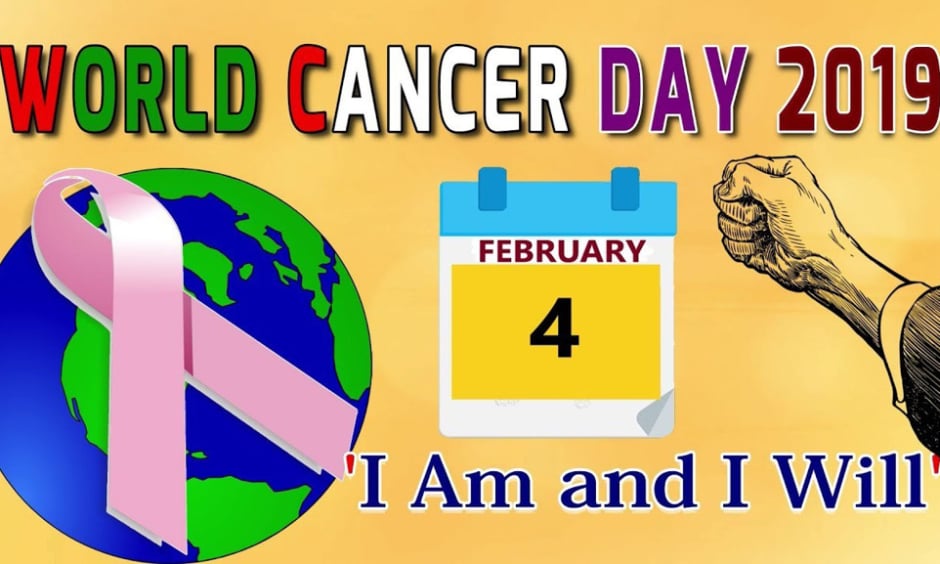Written by Muthuswamy Balasubramanyam,1 Jayashree Balasubramanyam,2 Bhagyasri Balasubramanyam3
- Madras Diabetes Research Foundation, Chennai, India
- Sankara Nethralaya, Chennai, India
- Sri Venkateswara Dental College and Hospital, Chennai, India
![]()
Whoever you are, you have the power to reduce the impact of cancer for yourself, the people you love, and for the world. It’s time to make a personal commitment. Every citizen, irrespective of where they live, should serve as an ambassador, drawing upon World Cancer Day’s theme of ‘I am and I will.’
World Cancer Day
Every year, World Cancer Day is observed on February 4th. World Cancer Day was established by the Paris Charter and adopted at the World Summit Against Cancer for the New Millennium in Paris on 4th February 2000. This Charter aimed to promote research for curing and preventing the disease, upgrade the provided services to the patients, raise global awareness, and mobilise the global community against cancer. The theme for this year’s awareness programme was ‘I am and I will.’1 World Cancer Day explored how everyone – as a collective or as individuals – can do their part to reduce the global burden of cancer. Just as cancer affects everyone in different ways, all people have the power to take various actions to reduce the impact that cancer has on individuals, families, and communities.
Cancer and Diabetes – Twin Epidemics
“We need to battle against the twin epidemics of cancer and diabetes together, and, in fact, prevention as well as control measures need to be addressed holistically for all the non-communicable diseases,” says Dr Muthuswamy Balasubramanyam. The relationship between diabetes and cancer is a topical issue. Cancer and diabetes are diagnosed within the same individual more frequently than would be expected by chance, even after adjusting for age. It is estimated that approximately 8–18% of people with cancer have concurrent diabetes, probably because of the shared risk factors between the diseases and their increasing global prevalence.2 Epidemiological data also suggest that patients with diabetes have a higher risk of developing several types of cancer, including liver, pancreatic, colorectal, gynaecologic, and breast cancer. Does this imply diabetic oncopathy3 is an emerging diabetic complication?
Oral health and cancer prevention
“Oral health may have an important role in cancer prevention,” says Dr Bhagyasri Balasubramanyam. A recent study highlighted the role of a bacteria that causes periodontitis, an inflammation of the tissues surrounding the teeth, in the development of oral cancers and certain other cancers, as well as the link between periodontitis and cancer mortality at the population level.4 “It appears that the prevention and early diagnosis of periodontitis are very important, not only for patients’ oral health but their overall wellbeing, as well as prevention of several diseases, including cancer,” adds Bhagyasri.
Cancer stem cells and targeted therapy
“In the era of personalised medicine, as well as precision medicine, targeted therapy has become an integral part of cancer treatment in conjunction with conventional chemo and radiotherapy,” says Dr Jayashree Balasubramanyam. In recent years, the aptamer-siRNA method of systemic administration has emerged as a promising technique for delivering the siRNA to specific tumour cells and to target them for appropriate cell death. “My PhD work,5 using state-of-the-art in vitro and in vivo experiments, has demonstrated the efficacy of EpCAM Aptamer Chimeras coupled to siRNA gene silencing for targeted anti-cancer applications with special reference to the cancer context of retinoblastoma,” adds Jayashree.
Cancer Prevention is in our hands
As in the case of several non-communicable diseases, cancer prevention should be our goal. Tobacco consumption, obesity, an unhealthy diet, high alcohol intake, and physical inactivity are all known risk factors of cancer, but the good news is that they are all modifiable factors. Through investment in cancer research and innovation, we have already witnessed extraordinary breakthroughs in prevention, diagnostics, and management of the disease. The more we know, the more progress we can make in reducing risk factors; increasing prevention; and improving cancer diagnosis, prevention, treatment, and care.
References
- World Cancer Day. I Am and I Will. Available at: https://www.worldcancerday.org/about/2019-2021-world-cancer-day-campaign. Last accessed 5 February 2019.
- Richardson LC, Pollack LA. Therapy insight: Influence of type 2 diabetes on the development, treatment and outcomes of cancer. Nat Clin Prac Oncol. 2005;2(1):48-53.
- Balasubramanyam, M. Diabetic Oncopathy – One more yet another deadly diabetic complication! Indian J Med Res. 2014;140(1):15-8.
- Heikkilä P et al. Periodontitis and cancer mortality: Register-based cohort study of 68,273 adults in 10-year follow-up. Int J Cancer. 2018;142(11):2244-53.
- Jayashree B. EpCAM aptamer siRNA chimeras for targeted anti-cancer therapy: An in vitro and in vivo investigation [PhD Thesis]. 2018. Chennai, India: Anna University.








